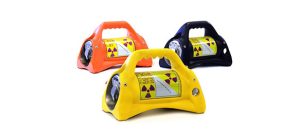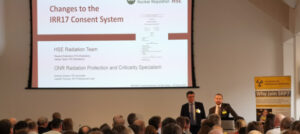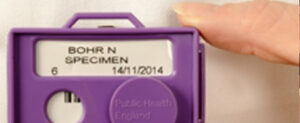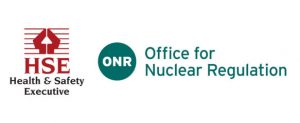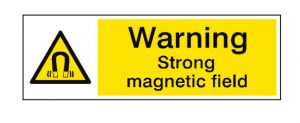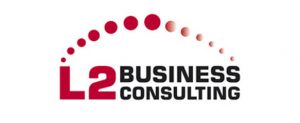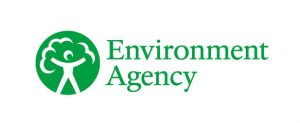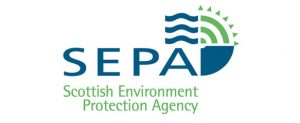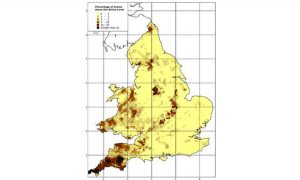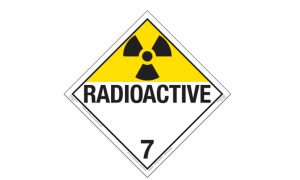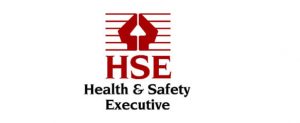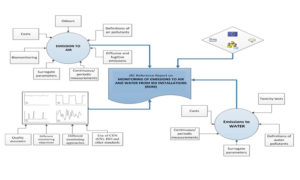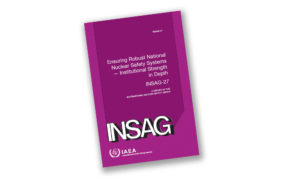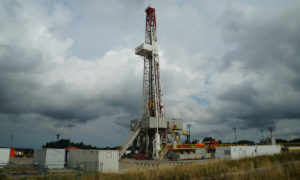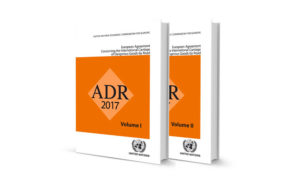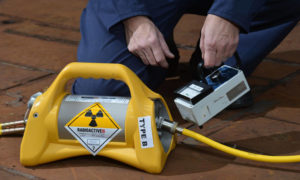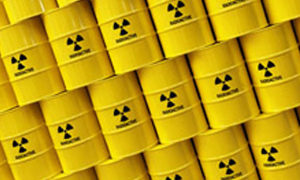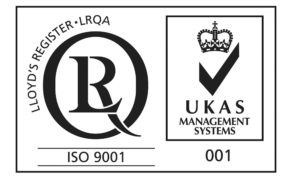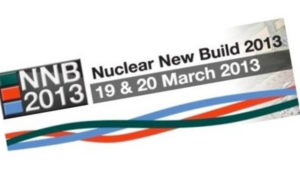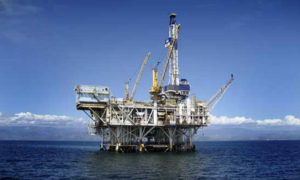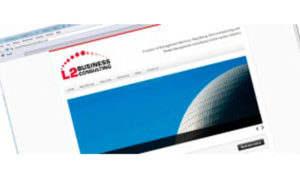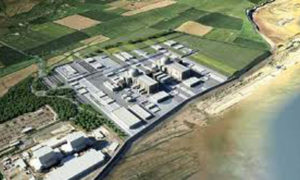Radiation Protection Requirements for Source Exchange in Industrial Radiography
Source Exchange is undertaken to temporarily remove and return a Source Assembly from a Gamma Source Projector to allow examination, maintenance and test to be undertaken on the projector or to allow a redundant Source Assembly (spent) to be removed and replaced with a new Source Assembly. Ideally Source Exchange should be undertaken off-site in…
Read MoreRadiation Protection Requirements for use of Desktop XRF Analysers
X-Ray Fluorescence (XRF) is a non-destructive analytical technique used to determine the elemental composition of materials and can also be used to determine the thickness of coatings applied to a material. Desktop XRF Analysers contain a relatively low energy X-Ray Generator, which is a source of ionising radiation. This article highlights key radiation protection requirements…
Read MoreTransport of Class 7 Dangerous Goods – Review and Testing of Emergency Plans for Radiation Emergencies
The Carriage of Dangerous Goods (Amendment) Regulations 2019 (CDG19) which came into force on 21 April 2020 and amended the Carriage of Dangerous Goods and Use of Transportable Pressure Equipment Regulations 2009 (CDG09) placed revised requirements on Duty Holders undertaking transport of radioactive materials in regards to the need for review and testing of Emergency…
Read MoreRadiation Protection Requirements for Small Animal Veterinary X-Ray Radiography Diagnostics
X-Ray radiography is a commonly utilised non-invasive diagnostic tool in small animal veterinary practice using a variety of X-Ray techniques including conventional, dental, computed tomography (CT) and/or fluoroscopy. The HSE have been undertaking an on-going programme of inspections on veterinary practices against, with continued evidence of a very high level of material non-compliance to IRR17.…
Read MoreChanges in UK Airport X-Ray Screening Equipment
The United Kingdom Health Security Agency (UKHSA) have made us aware of changes in the technology that is being rolled out across UK airports and potentially international airports. The new type of X-Ray equipment, 3-D X-Ray Computed Tomography, being introduced to assist with passengers passing through security, permitting laptops and other sensitive technologies to remain…
Read MoreRadiation Protection Requirements for use of Handheld XRF Analysers
X-Ray Fluorescence (XRF) is a non-destructive analytical technique used to determine the elemental composition of materials and can also be used to determine the thickness of coatings applied to a material. XRF Analysers contain a small X-Ray Generator, which is a source of ionising radiation. This article highlights key radiation protection requirements around use of…
Read MoreHSE/ONR Temporary Covid-19 Regulatory Position Statement (RPS) relating to Ionising Radiations Regulations 2017
The HSE and ONR have recently set out a temporary Regulatory Position Statement (link here) that addresses specific arrangements required for compliance to Ionising Radiations Regulations 2017 (IRR17). The temporary RPS only applies if a duty holder cannot follow with certain specific requirements of IRR17 including the Approved Code of Practice (ACoP)/Guidance as detailed below:…
Read MoreOur Business Response to COVID-19
Like other business in the UK and globally we are adjusting our normal business operations to consider the impact from the novel COVID‐19 virus. To this end from this week we have implemented our existing Business Continuity Plan for Pandemic and taken the following actions: • All personnel are working from home and L2 is…
Read MoreThe Control of Electromagnetic Fields at Work Regulations 2016
The Control of Electromagnetic Fields at Work Regulations 2016 (CEMFAW Regulations) came into force on the 1stJuly 2016 and requires Employers to assess the risks to employees and others from exposure to electromagnetic fields (EMF), a form of non-ionising radiation in the workplace. The regulations require that when personnel may be exposed to levels of…
Read MoreImplementation of Carriage of Dangerous Goods (Amendment) Regulations 2019 on the transport of Class 7 Dangerous Goods
The new Carriage of Dangerous Goods (Amendment) Regulations 2019 (CDG19) came into force on 21st April 2019 with the specific requirements relating to transport radiation emergencies detailed in Schedule 2 will not come into effect until 21st April 2020. The key requirements of the regulations are to consider the duties of key duty holders in…
Read MoreEnvironment Agency: Regulatory Position Statement regarding Radioactive Substances Activity (RSA) Environment Permits and EU Exit
The Environment Agency (EA) has issued a new Regulatory Position Statement (RPS) (entitled EU Exit RPS) in relation to the United Kingdom’s planned exit from the EU in respect of radioactive substances, which is valid until 30th September 2019. Subject to an exit from the EU occurring holders of radioactive substances activity (RSA) environmental permits…
Read MorePractical Radiological Protection and Emergency Response Training for Industrial Radiography
L2 Business Consulting Limited has been successfully delivering classroom radiological protection training relating to industrial radiography (for X-Rays and Gamma) for 10 years as required by the Ionising Radiation Regulations 2017 (IRR17) for radiography assistants, radiographers and Radiation Protection Supervisors (RPS). Whilst our classroom training has always included desktop emergency exercises, there has been increasing…
Read MoreRadiation Protection Adviser Support for Radon Gas Exposure
L2 Business Consulting Limited is a RPA body recognised by HSE under the Ionising Radiation Regulations 2017 (IRR17) who provide advice to Employers who undertake practices involving ionising radiation and any occupational exposure carried on in an atmosphere containing radon-222 gas at an annual average activity concentration in air exceeding 300 Bq m-3. Radon-222 gas…
Read MoreImpact of BSSD 2013 on Transport of Class 7 Dangerous Goods
CDG 2009 (as amended) regulates the transport of dangerous goods and enact the use of ADR (road) and RID (rail) frameworks in the UK, CDG 2009 also has specific sections which deal with Class 7 dangerous goods (radioactive materials), Regulation 24 and the related Schedule 2, which set out the regulatory requirements in relation to…
Read MoreThe Ionising Radiations Regulations 2017
The new Ionising Radiations Regulations (IRR17) have now been published and will come into force from 1st January 2018 and from this date completely revoke and supersede the Ionising Radiations Regulations 1999. The new regulations build upon the system of radiological protection developed in the UK over a number of years and update it to…
Read MoreUpdate of UK Implementation of EU Directive 2013/59/EURATOM
The timeline for the implementation of the Basic Safety Standards Directive (2013/59/EURATOM), which will be implemented in the UK by new Ionising Radiations Regulations 2017 (IRR17) has been updated. The Health & Safety Executive (HSE) have advised that the new regulations (IRR17) will be implemented on 1st January 2018. It is expected that from late…
Read MoreUpdated European Commission Reference Document on Monitoring of Emissions to Air and Water from IED Installations
The European Commission (EC) has published the final draft reference document for Monitoring of Emissions to Air and Water from those installations covered by the Industrial Emissions Directive (IED). The IED is transposed into legislation in England and Wales by the Environmental Permitting (England and Wales) Regulations 2016, via the Pollution Prevention and Control (Scotland)…
Read MoreNuclear Safety Systems – Institutional Strength in Depth
‘Defence in Depth’ (DiD) has become a fundamental aspect of the analysis of the adequacy of technical systems to ensure nuclear safety. It provides a systematic means to analyse and ensure layers of systems to prevent or mitigate accidents. This was discussed in International Nuclear Safety Group (INSAG) publication Defence in Depth in Nuclear Safety…
Read MoreEnvironment Agency extends environmental permit regime to existing on-shore oil and gas facilities
On 22 May 2017, the Environment Agency updated its Regulatory Position Statement (RPS 392) dealing with the application of the environmental permit regime under Environmental Permitting (England and Wales) Regulations 2016 to existing on-shore oil and gas facilities. Since 1 October 2013 the Environment Agency have taken the view that operators of new onshore oil…
Read MoreTransport of Radioactive Materials by Road – Implementation of ADR 2017
The transport of radioactive materials and waste (Class 7 dangerous goods) in Great Britain is regulated by the Office for Nuclear Regulation (ONR) under the Carriage of Dangerous Goods and Use of Transportable Pressure Equipment Regulations 2009 (as amended) which implements ADR – the European Agreement concerning the International Carriage of Dangerous Goods by Road…
Read MoreL2 Business Consulting Limited recognised by HSE as a Radiation Protection Adviser Body
L2 Business Consulting Limited is pleased to announce that following review of our application by the Health & Safety Executive (HSE), we have been recognised as a Radiation Protection Adviser Body (RPA Body). Our RPA Body status is underpinned by a strong team of individually certificated RPAs and Health Physicists with extensive experience in nuclear,…
Read MoreNew UK NORM Waste Strategy – Key Implications for Offshore Oil/Gas Industry
The UK has recently published a new strategy on the Management of Naturally Occurring Radioactive Material (NORM) Waste, which will have significant impact for oil/gas industries.
Read MoreL2 Achieves ISO9001:2008 Third Party Accreditation from LRQA
L2 has operated an IMS aligned to PAS99 for several years and in July 2013 gained third party accreditation for the IMS by LRQA to ISO9001:2008.
Read MoreRadiation Protection Training Course – XRF Analysers
L2 will be running a one day course in Newcastle upon Tyne on Radiation Protection Training for Handheld XRF Analysers on 4 July 2013, suitable for both general users and RPS’s.
Read MoreL2 Successfully Completes FPAL Registration
L2 Business Consulting Limited is now fully registered as a supplier on the First Point Assessment (FPAL) Database
Read MoreL2 attending Nuclear New Build 2013 Conference
L2 will be attending the New Nuclear Build conference on 19-20th March 2013.
Read MoreL2 Joins Decom North Sea
L2 has provided services into the oil and gas decommissioning sector for a number of years and have taken the decision to step up our profile in the sector, one of which is becoming a member of Decom North Sea
Read MoreLaunch of New L2 Business Consulting Website
Launch of New L2 Business Consulting Website.
Read MoreL2 Business Consulting Limited Moves to New Offices
From 1 May 2012 we will move our main office to the new address in Gosforth, Newcastle upon Tyne.
Read MoreDECC issues new guidance on Funded Decommissioning Programmes (FDP)
New guidance from Department of Energy and Climate Change (DECC) on how it will incur costs in obtaining advice in respect of a prospective new nuclear build operator’s FDP and how DECC will seek to recover those costs from the operator
Read More